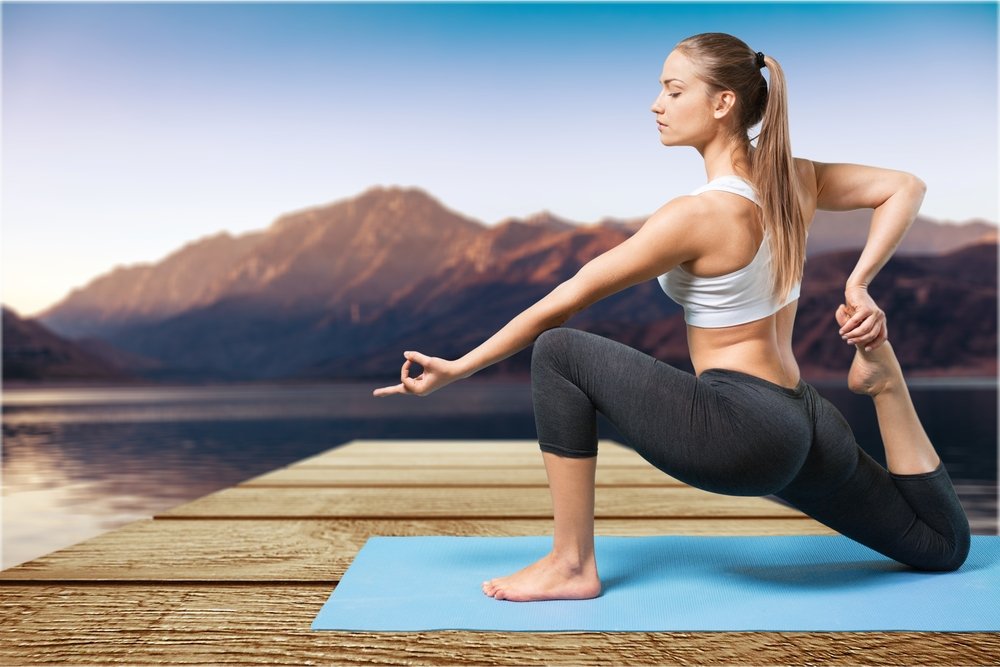Everyone knows that Yoga strengthens the body physically as well as mentally. But did you know that it can also strengthen your immune system?
A 5,000-year-old repository of Indian knowledge and know-how, yoga is more than just twisting, turning, stretching and breathing exercises. It’s a way of life. This ancient art that strengthens the body and relaxes the mind can also be the best way to stave off routine illnesses and ailments.
At any given time of the day or year, our bodies are vulnerable to infection by the multitude of viruses and bacteria. They’re what lead to runny noses, hacking coughs, stomach infections and bad cases of the flu. Proper hygiene and healthy eating habits can help to an extent, but yoga can actually help the body fight infection. We tell you why:
It helps reduce stress levels naturally
A person who’s under stress is more likely to catch a cold or a fever when viruses invade the nasal passage. Stress also seems to worsen or lift the risk of conditions such as depression, gastrointestinal problems, heart disease, diabetes, obesity, Alzheimer's disease and asthma. Yoga helps lower stress hormones and calms the nervous system, which is linked to the immune system.
It keeps the respiratory system on track
Colds and similar infections are caused by bacteria that affect the upper respiratory system. If the immune system isn’t strong enough to throw them off, the bacteria can penetrate into the lungs and lead to bronchitis or pneumonia. Yoga is one of the main tools for maintaining the health of our respiratory system. Regularly performing breathing exercise and asanas conditions the respiratory tract and boosts the efficiency of the lungs.
It ensures optimal functioning of all organs
Desk jobs and a sedentary lifestyle mean that our organs don’t get enough blood flow, leading to blockages and buildup of toxins. Over time, this can lead to breakdowns in the body system. Done on a regular basis, yoga stimulates the lymphatic system to remove toxins from the body. The various asanas ensure that different organs and glands receive fresh blood, and are gently massaged and stimulated. The increase in supply of oxygenated blood to organs ensures their optimal function.
It keeps muscles and joints in good working order
Whatever your age might be, joint and muscular pain doesn't seem to distinguish these days. A weak bone structure, lack of physical exercise and deficiency of essential nutrients in the diet can aggravate the situation. Yoga can help lubricate the joints with synovial fluid and stabilise muscles through strengthening exercises, helping eliminate the pain.
Try these yoga poses to stimulate your nervous, digestive, circulatory and endocrine systems and enhance their functioning:
Dhanurasana
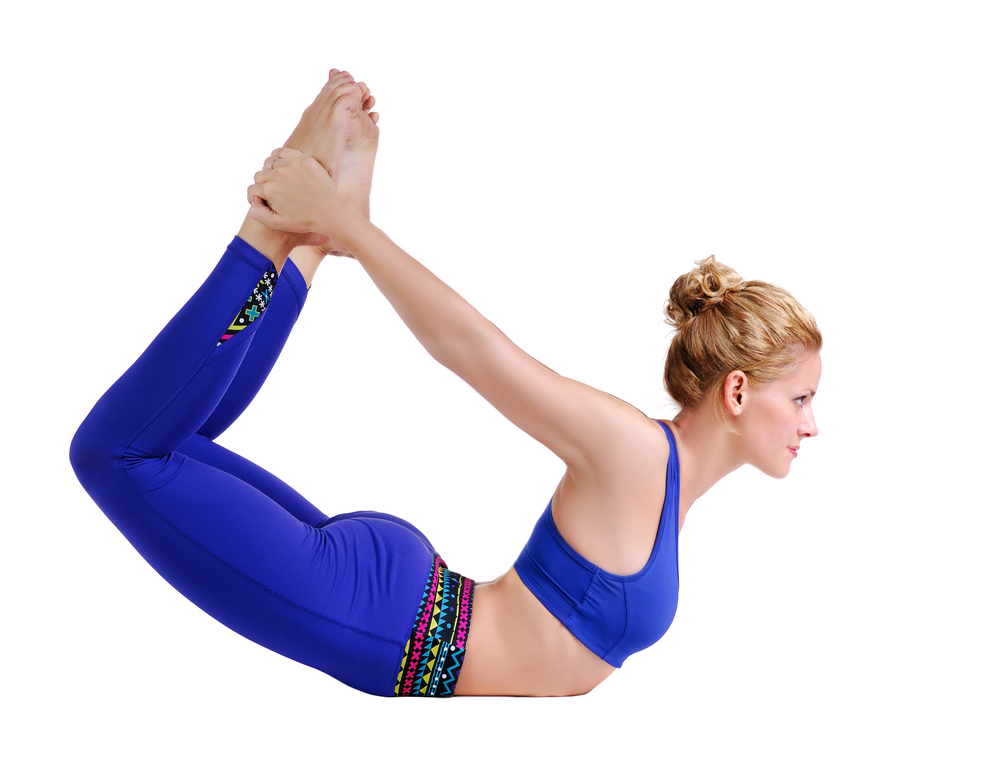
This asana is named for the shape the body takes when you do this pose – that of a bow.
- Lie on the stomach, your feet hip-width apart and arms by the side of your body.
- Fold the knees, take your hands backwards and hold your ankles.
- Breathe in, lift your chest off the ground and pull your legs up and back.
- Look straight ahead, a smile on your face, and keep the pose stable.
- The body should be curved and taut as a bow. Take deep breaths as you relax and pay attention to your breath. Bend to your comfort.
- After 20 seconds, exhale and gently bring your legs and chest to the ground. Release ankles and relax.
Balasana
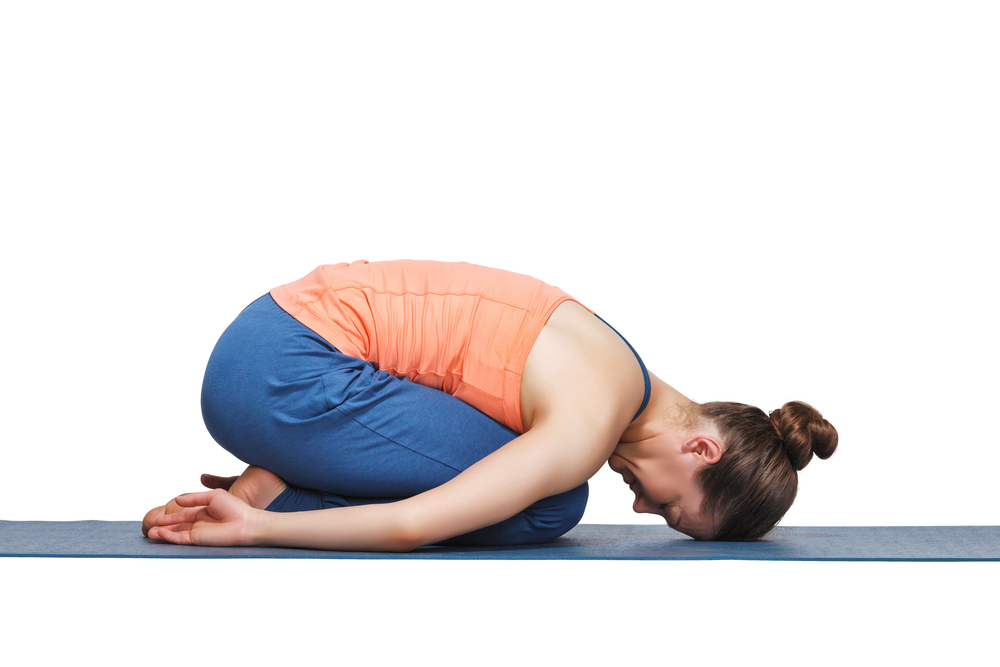
This restful pose, also known as Child’s Pose, can be sequenced between more challenging poses.
- Sit on your heels, with your knees together or apart.
- Slowly, exhale and bend forward by lowering your forehead to touch the floor.
- Keep your arms along the upper body, with palms facing upwards.
- Or else, reach out your arms towards the front of the mat, palms facing downwards on the mat.
- Gently press your chest on the thighs or between the thighs if the feet are apart.
- Hold for 45 seconds to 1 minute.
- As you inhale, pull the navel towards your spine. While exhaling, soften your body and the arms.
Bhujangasana
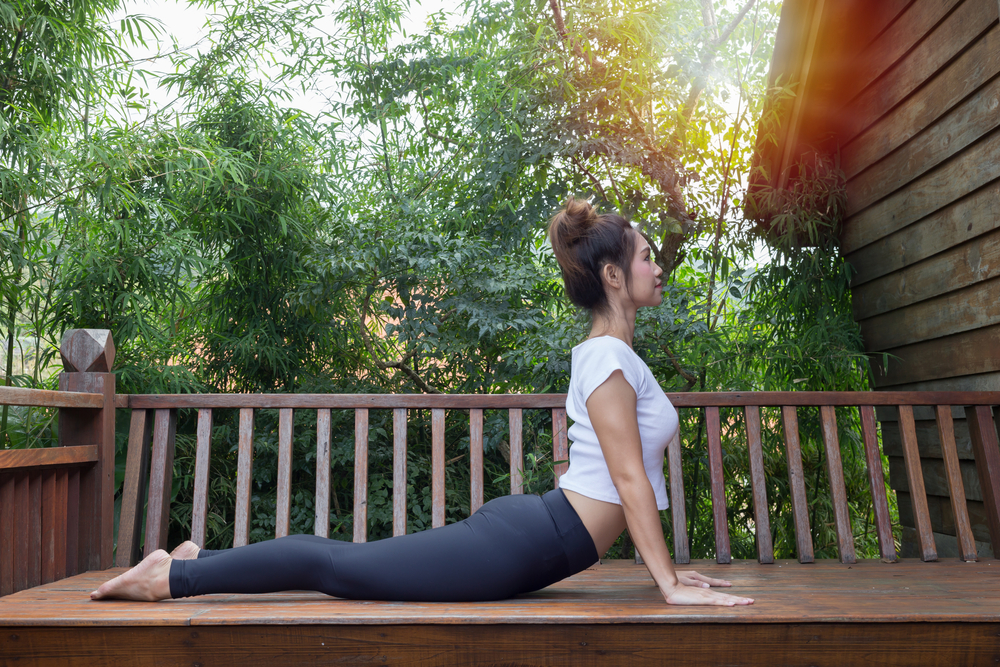
Cobra Pose, or Bhujangasana, resembles a serpent with its hood raised. It is part of the sequence of postures in Padma Sadhana and Surya Namaskar.
- Lie on the stomach, your toes flat on the floor and forehead resting on the ground.
- Keep your legs close together, feet and heels lightly touching each other.
- Place palms downwards under your shoulders, keeping elbows parallel and close to the torso.
- Take a deep breath and slowly lift your head, chest and abdomen. Keep your navel on the floor.
- Use your hands to pull your torso off the floor.
- Curve your spine and straighten your arms by arching your back as much as possible.
- Tilt your head back and look up but don’t overdo the stretch. The feet should be close together.
- Breathe out, and gently bring your abdomen, chest and head back to the floor.
Halasana
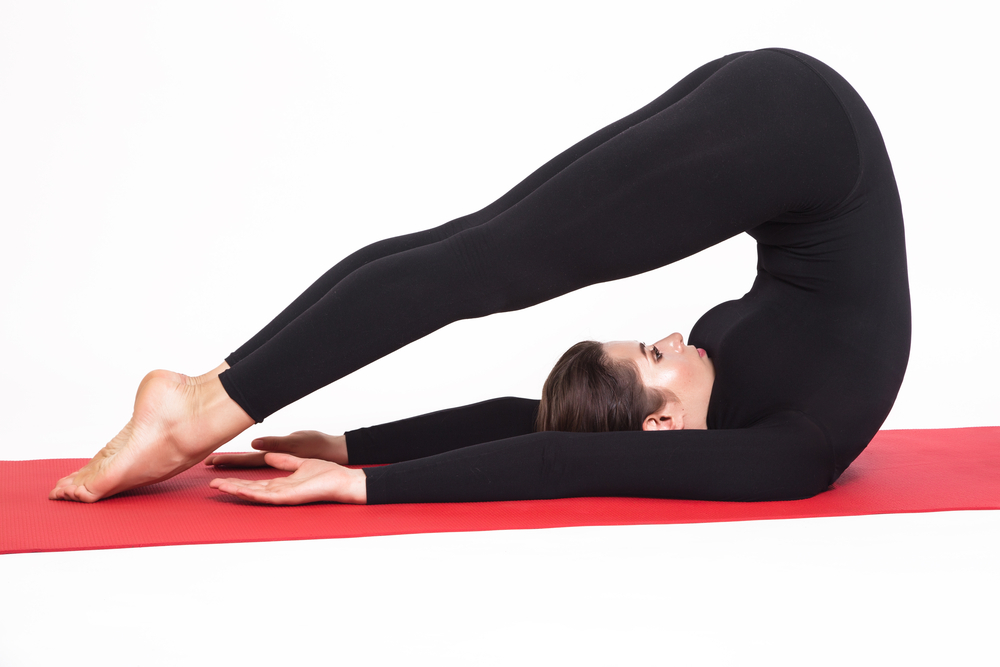
This yoga pose draws its name from the plough, a popular farming tool commonly used in Indian agriculture.
- Lie on your back, your arms beside you with palms downwards.
- As you inhale, use the abdominal muscles to lift your feet off the floor, raising your legs vertically at a 90-degree angle.
- Continue to breathe normally. Support your hips and back with your hands, and lift them off the ground.
- Allow your legs to sweep in a 180-degree angle over your head till your toes touch the floor.
- The back should be perpendicular to the floor.
- Hold the pose and let your body relax with each breath.
- After about a minute, gently bring your legs down as you exhale
Uddiyan Bandha
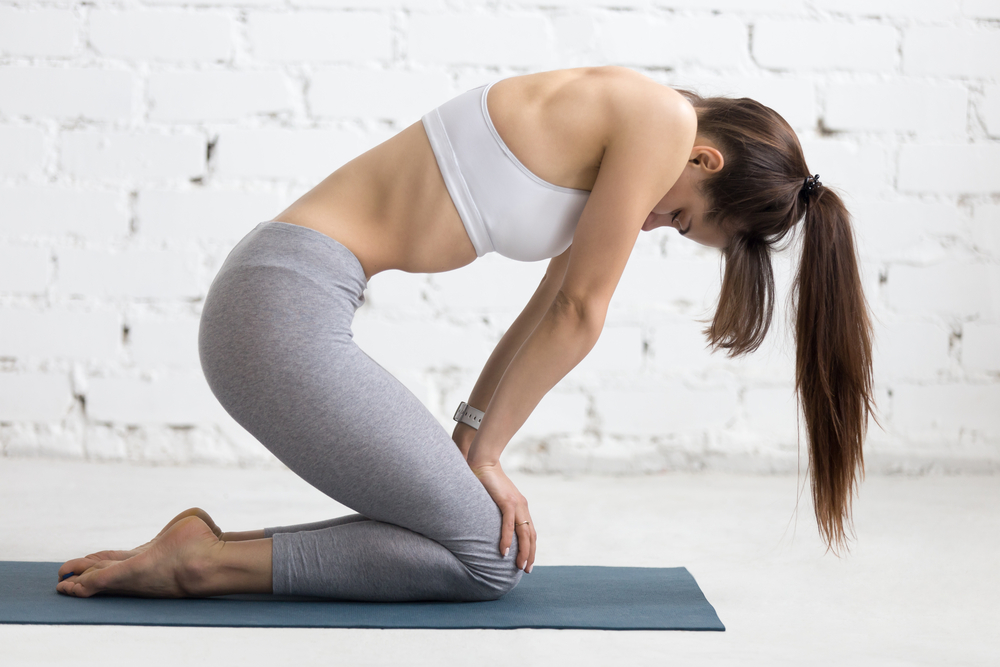
This asana involves movement of the muscles of the stomach, especially the diaphragm.
- Stand straight, keeping your feet at a distance of 1 to 1.5 feet.
- Bend the knees a little. Place the left palm on the left knee and right palm on the right knee.
- Bend shoulders and neck towards the front so that the weight of the body is shifted onto the knees through the hands.
- This pose reduces the strain on the stomach, allowing the muscles to be relaxed.
- Inhale deeply, exhale gradually.
- While exhaling, try and shift the stomach muscles towards the inner side.
- Lift the ribs and push the muscles from within upwards gently. If the stomach muscles are relaxed, they can be pushed up easily.
- Remain in this pose till you exhale fully.
Agnisar Kriya
This pose targets the abdominal organs and chakras, the centres of consciousness.
- Inhale deeply as you stand with your legs slightly apart, back straight and abdominal muscles relaxed.
- Try and draw the navel upwards and inwards to the spine.
- Make sure you are not pulling in the navel from below the sternum or allowing your chest to sink,
- Hold your breath for a moment before you move the abdomen backwards and forwards 10-12 times while holding your breath. This completes one round.
- For best results, do at least three rounds of the Agnisar Kriya.
Nauli Kriya
One of the six purification methods or Shatkarma in Hatha Yoga, this pose isn't easy for beginners. It may take anywhere between three months to a year to perfect.
- Stand with your feet apart, knees bent and hands holding your thighs.
- Take a deep breath and force it out with a hissing sound.
- Contract your belly inwards and upwards towards the sternum in Uddiyan Bandha. This is the base position for Nauli Kriya.
- Hold your breath. Try to isolate the two abs muscles and force them towards the centre. Remember, there is no breathing involved.
- The main difficulty lies in isolating the muscles and pulling them into position.
- Breathe in, release, and come to a fully standing position.
- Take a few deep natural breaths before trying again.
- Work your capacity over a period of time.
End your session with Shavasana. Just surrender the entire body weight to gravity and desist from any kind of mental activity. These yoga poses, done regularly, will reward you with a strong and revitalised immune system.
Originally Published on the HealthifyMe Blog

